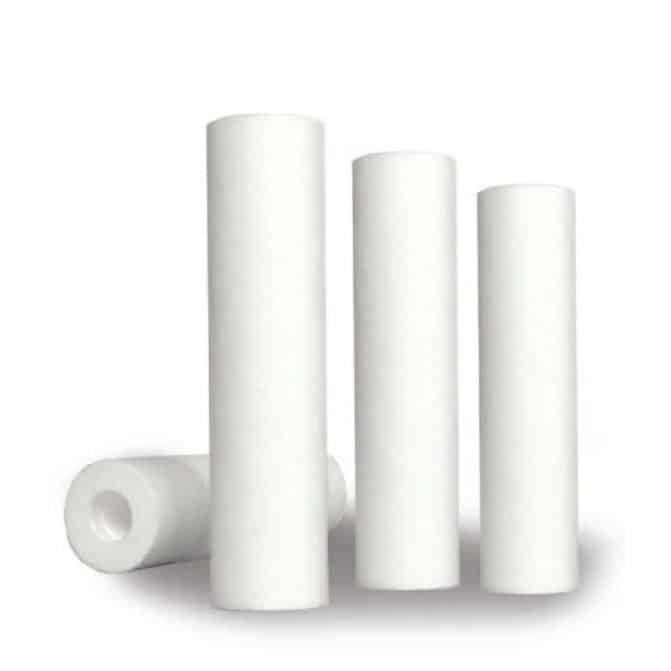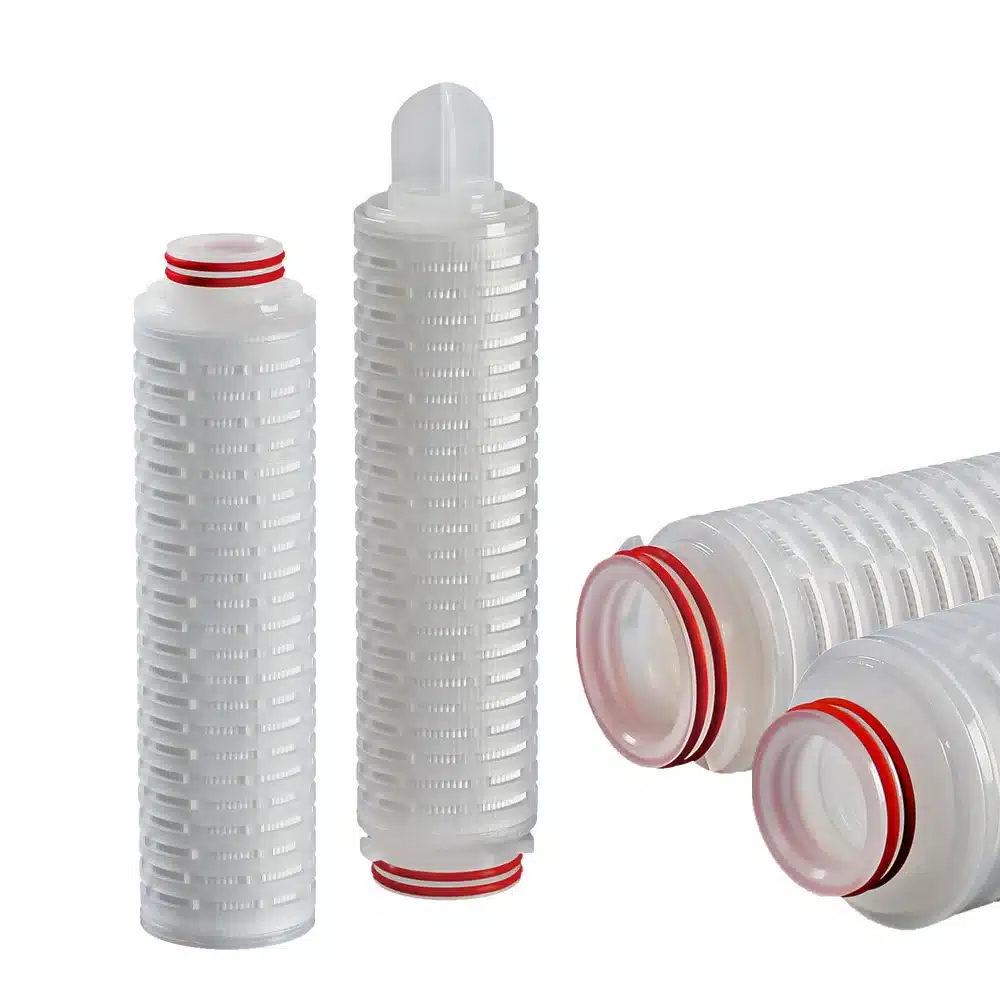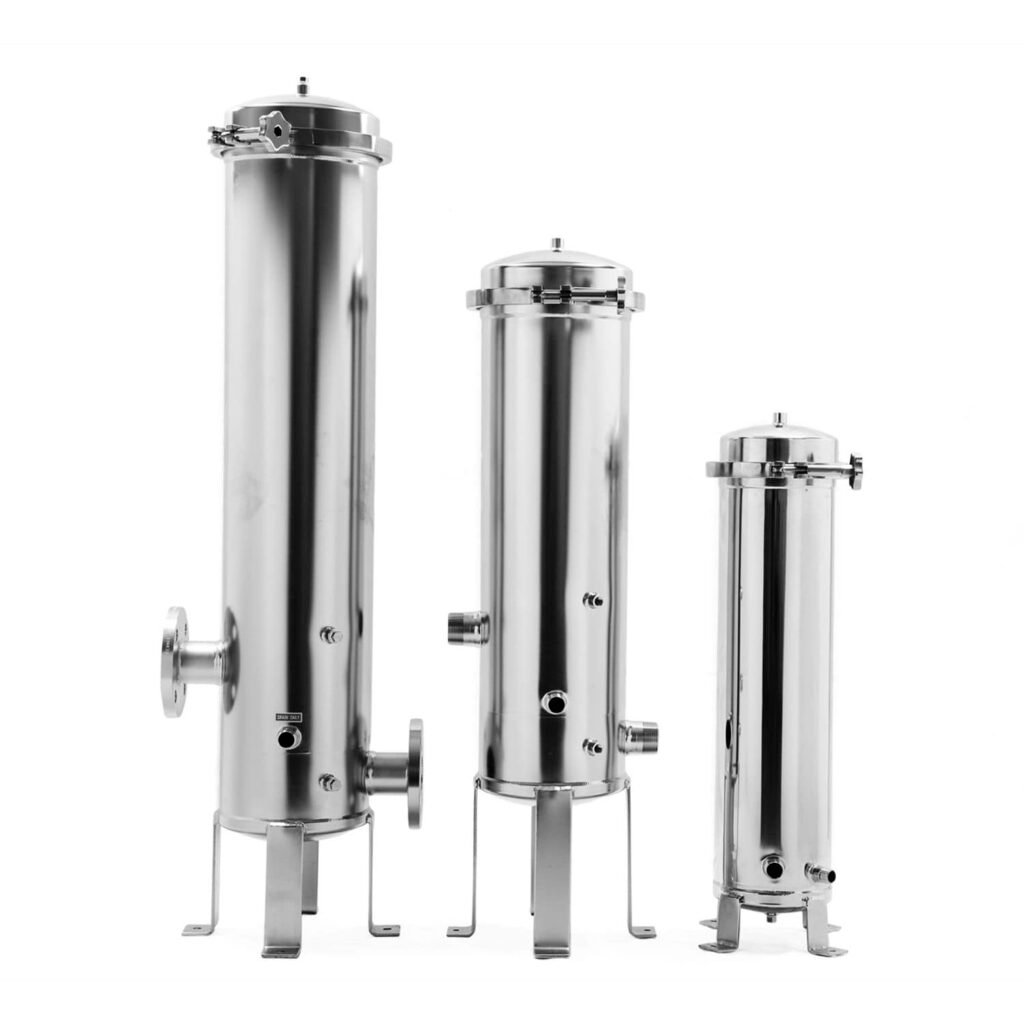1 Micron Cartridge Filters: Efficiency, Applications, and Buying Tips
OVERVIEW
In the world of water purification and liquid filtration, 1 micron cartridge filters play an essential role in ensuring clean, safe, and high-quality output. Whether used in industrial water treatment systems, pharmaceutical manufacturing, food and beverage processing, or residential whole-house filtration units, these filters are designed to capture extremely fine particles, offering superior protection and efficiency.
The term “1 micron” refers to the size of the pores within the filter media. One micron equals one-millionth of a meter, or approximately one twenty-fifth of a thousandth of an inch. To put this into perspective, a human hair is about 70 microns thick, and bacteria typically range from 0.2 to 2 microns in size. This means a 1 micron cartridge filter is capable of capturing many types of suspended solids, protozoa, cysts, and some bacteria, depending on the design and material.
In this article, we will explore the efficiency, applications, and buying tips for 1 micron water filter Cartridges. By the end, you will understand their importance, the differences from other micron ratings, how to select the right type for your needs, and the most suitable applications for both industrial and residential use.
What Does 1 Micron Mean in Filtration?
When shopping for cartridge filters, one of the most common specifications you will see is the micron rating. The micron rating determines the ability of the filter to capture particles of a certain size.
1 Micron: Capable of filtering out extremely small suspended solids, fine sediments, protozoan cysts like Giardia and Cryptosporidium, and in some cases, even some bacteria.
5 Micron: More common in pre-filtration and sediment removal. Removes dirt, sand, and larger particles but allows smaller particles to pass through.
10 Micron and Above: Typically used for coarse filtration in applications where only visible particles need to be removed.
A 1 micron filter is therefore considered a fine filtration option, often used after a coarse filter in multi-stage filtration systems.
Types of 1 Micron Cartridge Filters
Not all 1 micron water cartridge filters are the same. Depending on the material, construction, and end-cap design, they may perform differently in various environments. Below are the most common types:
1. Melt Blown Filter Cartridges
Made from polypropylene fibers.
Depth filtration structure captures particles throughout the entire filter media, not just on the surface.
Cost-effective, widely used in pre-filtration and water treatment systems.
2. String Wound Filter Cartridges
Constructed by winding yarn around a central core.
Excellent dirt-holding capacity and gradual filtration across the depth of the media.
Suitable for water with high sediment load.
3. Pleated Filter Cartridges
Made with pleated polypropylene, polyester, or membrane material.
Large surface area due to pleats, offering higher dirt-holding capacity and longer lifespan.
Often used in industrial applications like pharmaceuticals, microelectronics, and food & beverage.
4. Membrane Filter Cartridges (PES, PVDF, Nylon, PTFE)
High-performance cartridges with absolute filtration capability.
Used in applications requiring sterile or highly purified water, such as biopharmaceuticals and laboratories.
Typically rated at 0.1 to 1 micron for microbial removal.
Efficiency of 1 Micron Water Filte Cartridges
The efficiency of a 1 micron filter depends largely on whether it is rated as nominal or absolute:
Nominal Rating: Means the filter can capture a certain percentage (usually 85–95%) of particles at 1 micron. Some particles smaller than 1 micron may still pass through.
Absolute Rating: Means the filter can capture 99.9% of particles at 1 micron. This type is used in critical applications where contamination control is essential.
For industrial or medical-grade applications, absolute-rated 1 micron filters are typically required, while nominal filters may be sufficient for general water treatment or residential systems.
Key Applications of Cartridge Filter 1 Micron
1. Water Treatment Industry
Used as part of multi-stage water purification systems.
Often placed before RO membranes to protect them from clogging and extend their lifespan.
Removes fine sediments, rust, and suspended solids that could damage downstream equipment.
2. Food and Beverage Industry
Ensures safe, clean water for use in beverage production, dairy, and bottled water.
Prevents contamination that could affect product taste, quality, or safety.
Meets regulatory requirements for water purity in food-grade applications.
3. Pharmaceutical and Biotechnology
Required for sterile water production and critical process filtration.
Prevents microbial contamination in drugs, vaccines, and laboratory solutions.
Absolute 1 micron membrane filters are often a standard in this industry.
4. Microelectronics and Semiconductor Manufacturing
Ensures ultrapure water supply to prevent damage during chip manufacturing.
Removes fine particles that could cause defects in microchips.
Critical for maintaining yield and quality control.
5. Residential and Commercial Use
Popular in whole house water filters and under-sink systems.
Provides protection against fine sediments, protozoan cysts, and other impurities.
Ensures better taste and clarity of drinking water.
Comparing 1 Micron vs 5 Micron Water Filter Cartridges
One of the most common questions among buyers is whether to choose a 1 micron filter cartridge or a 5 micron filter cartridge. Here are the main differences:
1 Micron Filter Cartridge: Captures smaller particles, provides finer filtration, and is better for critical applications. However, it may clog faster, requiring more frequent replacement.
5 Micron Filter Cartridge: More commonly used in pre-filtration, has a longer lifespan due to slower clogging, but allows smaller particles to pass through.

Factors to Consider When Buying a 1 Micron Cartridge Filter
Before purchasing a filter, you should evaluate the following factors to ensure the best performance:
Material of Construction: PP, PES, Nylon, or PVDF depending on application.
Nominal vs Absolute Rating: Choose absolute for critical filtration needs.
Flow Rate Requirements: Higher flow requires pleated or high-surface-area filters.
Compatibility with Chemicals: Ensure the filter media can withstand chemicals in your process.
End Cap Design: Different housings require specific connections (DOE, SOE, O-ring, flat gasket).
Temperature and Pressure Resistance: Industrial processes may require high durability.
Regulatory Compliance: Food-grade, FDA-approved, or pharmaceutical-grade standards may apply.
Buying Tips for 1 Micron Cartridge Filters
Selecting the right 1 micron cartridge filter requires more than just checking the micron rating. Here are some practical buying tips to ensure you get the right filter for your application:
Define Your Application Needs
For residential use, a nominal-rated filter may be enough to improve water clarity and protect household appliances.
For industrial or pharmaceutical use, always select absolute-rated filters to ensure consistent particle retention.
Choose the Correct Filter Media
Polypropylene (PP): Best for sediment removal and general water filtration.
PES or Nylon: Suitable for pharmaceutical, biotech, and laboratory-grade applications.
PTFE or PVDF: Resistant to aggressive chemicals, commonly used in chemical industries and microelectronics.
Evaluate the Filter Housing Compatibility
Check the size (10”, 20”, 30”, 40”) and connection type (DOE, SOE, O-ring, flat gasket).
Ensure the filter housing is compatible with the cartridge filter’s specifications.
Balance Filtration vs. Flow Rate
A 1 micron filter provides finer filtration but may restrict flow if not properly sized.
For higher flow demands, opt for pleated cartridge filters due to their large surface area.
Consider Regulatory Certifications
For food and beverage industries, choose filters that meet FDA and NSF standards.
For pharmaceutical and biotech, look for validation data and compliance with USP standards.
Compare Cost vs. Lifespan
Melt blown filters are low cost but have shorter life cycles.
Pleated filters and membrane filters cost more but last longer and provide higher consistency.
Maintenance and Replacement Guide
Proper maintenance is critical to ensuring the efficiency and reliability of 1 micron cartridge filters. Neglecting filter replacement can lead to clogged systems, reduced water quality, and even equipment damage.
1. Signs Your Filter Needs Replacement
Noticeable drop in water flow or system pressure.
Water taste, odor, or clarity issues.
Differential pressure across the filter exceeds recommended levels (common in industrial systems).
2. Typical Replacement Frequency
Residential Use: Every 3–6 months depending on water quality.
Industrial Applications: Based on operating hours and differential pressure monitoring; may vary from weeks to months.
Pharmaceutical & Food Industry: Strict replacement schedules to maintain compliance and prevent contamination.
3. Best Practices for Maintenance
Always keep spare filters in stock for timely replacement.
Clean housings thoroughly before installing a new filter to avoid cross-contamination.
Record replacement dates to maintain consistency and compliance with quality standards.
Advantages of 1 Micron Cartridge Filters
High Filtration Efficiency – Capable of removing fine particles, protozoa, and some bacteria.
Versatility – Can be used in residential, commercial, and industrial applications.
Compatibility – Available in multiple sizes and materials to fit different housings.
Improved Water Quality – Enhances taste, clarity, and safety of water.
Equipment Protection – Extends the lifespan of RO membranes, UV sterilizers, and downstream filters.
Conclusion
The 1 micron cartridge filter is a highly effective filtration solution, suitable for both industrial-grade applications like pharmaceuticals and microelectronics, as well as residential whole-house systems. Its ability to capture fine particles makes it essential in multi-stage filtration setups where water purity is a top priority.
When choosing the right filter, consider factors such as absolute vs. nominal rating, filter media, flow rate, and regulatory compliance. With proper maintenance and timely replacement, a 1 micron cartridge filter ensures reliable performance, improved water quality, and protection for downstream systems.
Whether you are a business buyer looking for industrial-scale filtration or a homeowner aiming for cleaner drinking water, investing in the right 1 micron cartridge filter is a step toward better water safety and system efficiency.
FAQ – Water Filter Cartridge 1 Micron
Q1: What does a 1 micron cartridge filter remove?
A 1 micron cartridge filter removes fine sediments, protozoa (such as Giardia and Cryptosporidium), some bacteria, and microscopic particles. It is highly effective for improving water clarity and safety.
Q2: Is a 1 micron filter safe for drinking water?
Yes. A 1 micron filter improves drinking water quality by removing fine sediments and some microorganisms. However, for full microbiological safety, additional disinfection (such as UV or RO) may be required.
Q3: What is the difference between 1 micron and 5 micron filters?
A 1 micron filter provides finer filtration and removes smaller particles compared to a 5 micron filter. However, it may clog faster. Many systems use a 5 micron filter as pre-filtration followed by a 1 micron filter for final polishing.
Q4: How long does a 1 micron cartridge filter last?
In residential systems, 1 micron filters usually last 3–6 months. In industrial settings, lifespan depends on water quality and flow rate, often monitored by differential pressure across the filter.
Q5: Can a 1 micron filter remove bacteria?
Some bacteria may be reduced by a 1 micron filter, but not completely removed. For absolute bacterial removal, filters rated at 0.2–0.45 microns or UV sterilization are typically required.
Q6: Which industries use 1 micron cartridge filters?
They are widely used in water treatment plants, pharmaceuticals, food & beverage production, microelectronics, power plants, and residential whole-house filtration systems.
References
WHO – Guidelines for Drinking-water Quality
US EPA – Water Treatment Manuals
NSF International – Drinking Water Treatment Standards
FDA – Food Contact and Water Filtration Regulations
CDC – Filtration & Water Treatment Fact Sheet





